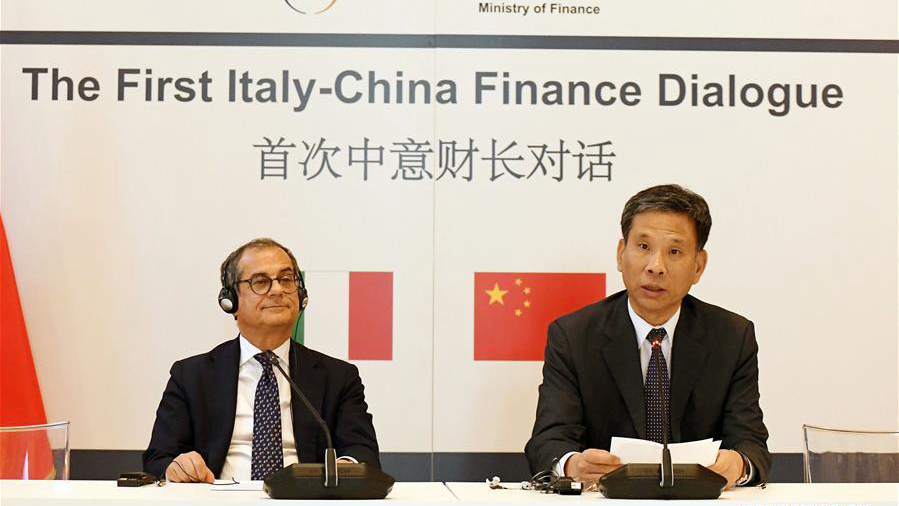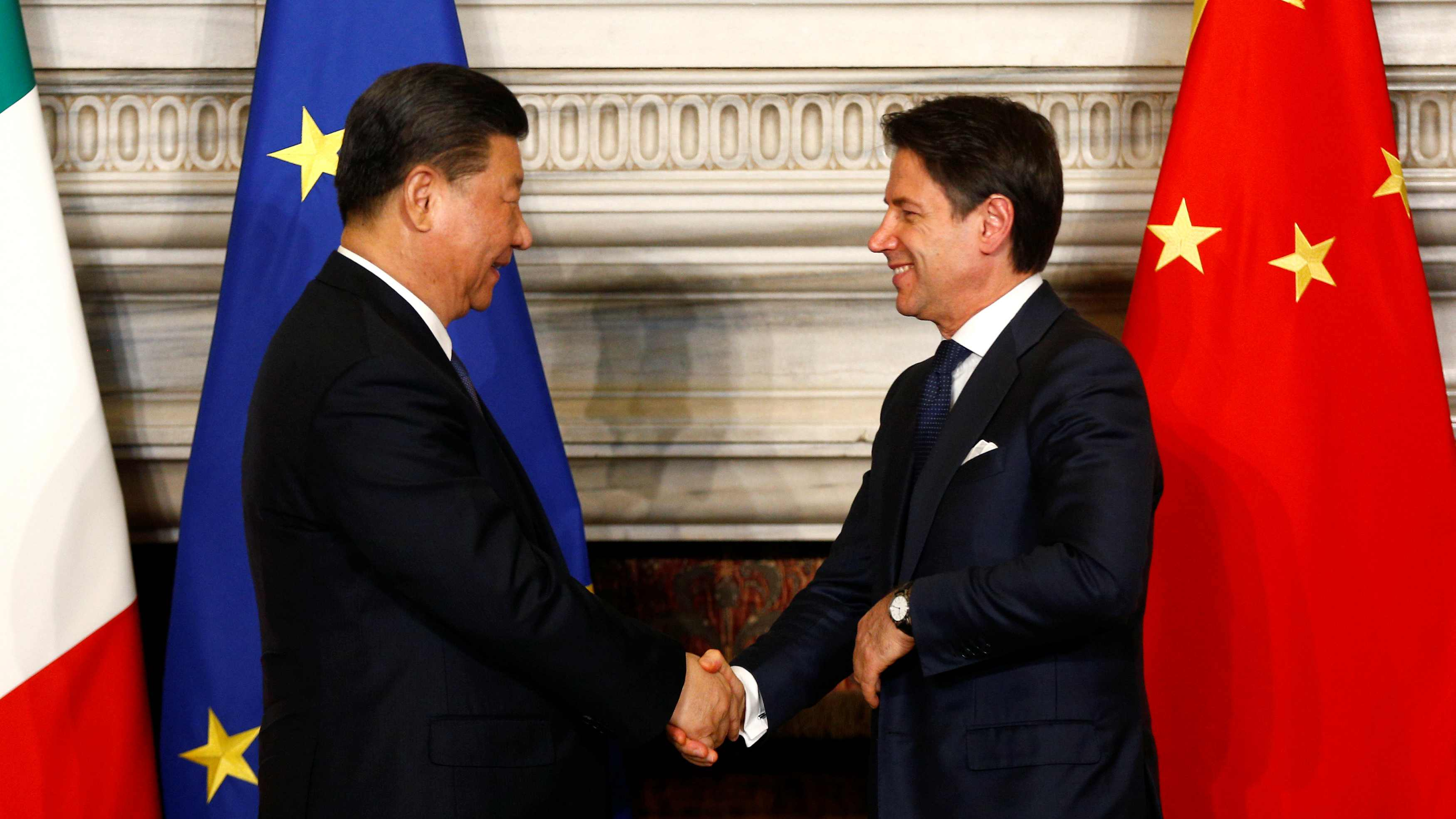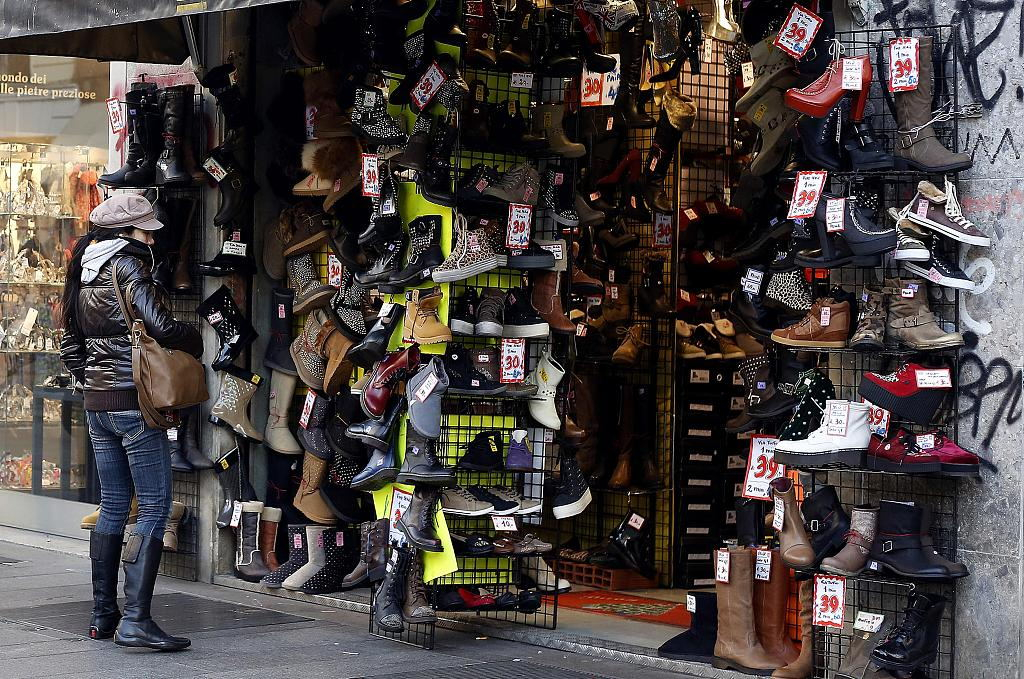

Editor's note: Matteo Giovannini is a finance professional at ICBC in Beijing and a member of the China Task Force at the Italian Ministry of Economic Development. The article reflects the author's views, and not necessarily those of CGTN.
On July 10, the First China-Italy Finance Dialogue was held in Milan, Italy's financial center, in the presence of the Minister of the Economy and Finance of the Italian Republic, Giovanni Tria and the Minister of Finance of the People's Republic of China, Liu Kun.
This event follows the Strengthening the Comprehensive Strategic Partnership agreed by the two Heads of State on March 23, 2019 on the "China-Italy Finance Ministers Dialogue Mechanism" and the agreement reached in the Memorandum of Understanding for the China-Italy Finance Dialogue signed by the two sides on November 29, 2018.
This meeting is another major step in the implementation of the Memorandum of Understanding between the two governments on jointly promoting the development of the Belt and Road Initiative (BRI), where Italy joined as the first G7 country, identifying synergies between the BRI and the EU Strategy on Connecting Europe and Asia on project cooperation.
The two countries have historically been bound by a long-lasting mutual friendship and recently this commitment has been deepened and broadened through bilateral and economic relations to enhance macroeconomic policy coordination and cooperation on economic and financial issues.
The cooperation between the two countries has been frequently described as a model for the dialogue between East and West.

Chinese President Xi Jinping and Italian Prime Minister Giuseppe Conte shake hands after signing trade agreements at Villa Madama in Rome, March 23, 2019. /Reuters Photo
Italy and China have expressed "their commitment to uphold the rules-based international economic system, to support multilateralism and the multilateral trading system with the WTO at its core, and to foster participation in the reform of global economic governance with a view to promoting high-quality, strong, sustainable, balanced and inclusive growth, improving living standards and boosting employment".
In my view, it is important to stress the commitment the two countries have expressed to openness, cooperation, multilateralism and accountability in a globalized 21st century.
Responsible countries cannot deny the importance of international bodies such as the G20, the International Monetary Fund, and multilateral developments banks, such as the World Bank and the Asian Infrastructure Investment Bank (AIIB). These should be the venues where countries are expected to make decisions in an increasingly interconnected world instead of acting unilaterally.
During the discussions, the importance of infrastructure for growth and development to fill the gap in developing countries has been underlined. In this context, Italy and China expect the AIIB to continue expanding its business and enhancing international influence, exploring projects and third market cooperation opportunities, especially in Africa.
Probably the most important outcome of this event has been the agreement on the first issuance in China of the so-called "Panda Bond" for an initial amount of 150 million euro, which will be issued by Cassa Depositi e Prestiti (CDP), the Italian sovereign wealth fund and distributed in the Chinese mainland by Italian and local commercial banks.
Italy's economy is dominated by small and medium-sized enterprises (SMEs) and, due to their size, these companies struggle to expand their business overseas. The issuance of the bond has the significance of supporting the expansion of Italian SMEs in China that have enormous potential but do not have easy access to financing.

A footwear store in Milan, Italy, December. 10, 2013. /VCG Photo
This is not the first time that a foreign entity has been allowed to issue bonds in local currency. In 2005, the International Finance Corporation (IFC) received the green light from the People's Bank of China (PBOC) to issue over 1 billion Chinese yuan.
The same happened with the Asian Development Bank (ADB) and in 2016, the PBOC through a Memorandum of Understanding (MOU) authorized Poland to become the first European country to issue Panda Bonds. In 2018, Philippine and Portugal issued the debt security.
China and Italy are demonstrating to the world how a constructive relationship can be successfully managed. Most commentators described the signing of an MOU between the two countries as pure theater and as an empty contract. I do believe that both countries consider that document a stepping stone to future shared common goals.
The expressed intent to meet again next year for the second China-Italy Finance Dialogue in China and the ongoing preparation for the celebration of the 50th anniversary of the establishment of diplomatic ties in 2020 clearly demonstrate that there is a bright future in the relationship between these two countries.
(Cover image: Chinese Finance Minister Liu Kun (R) and his Italian counterpart Giovanni Tria preside over the first Italy-China Finance Dialogue in Milan, Italy, July 10, 2019. /Xinhua Photo)
(If you want to contribute and have specific expertise, please contact us at opinions@cgtn.com.)

Copyright © 2018 CGTN. Beijing ICP prepared NO.16065310-3
Copyright © 2018 CGTN. Beijing ICP prepared NO.16065310-3